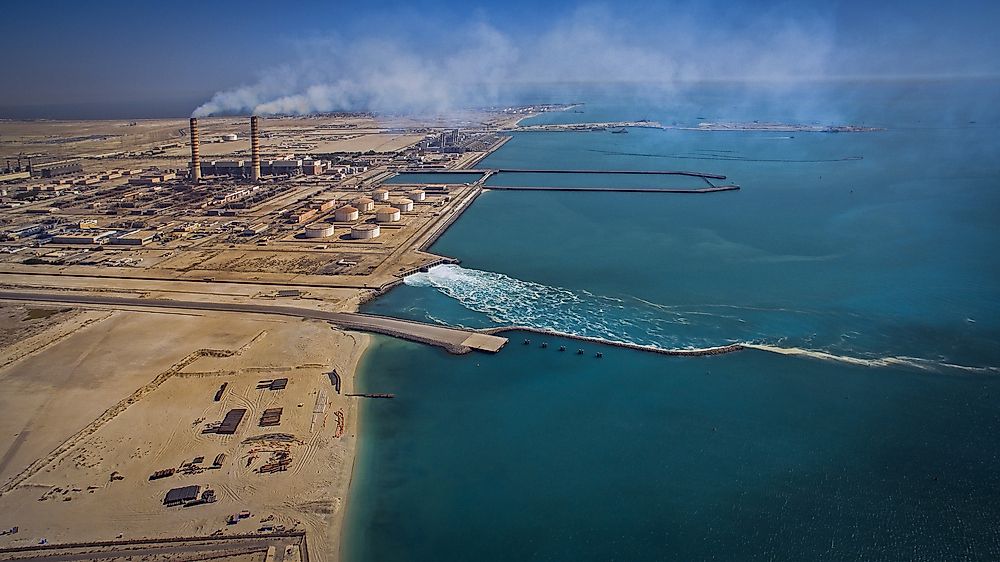The Biggest Industries In Kuwait

Kuwait is a sovereign Arab country situated on the Persian Gulf. It is bordered by Saudi Arabia and Iraq. The capital city of Kuwait is Kuwait City which is characterized by skyscrapers and modern architecture. Kuwait underwent large-scale modernization between 1946 and 1982 which aimed at boosting its financial performance both locally and internationally. However, the country’s economy did not experience the economic growth and development that was expected. Instead, the economy had to contend with challenges that arose such as the stock market crash in the 1980s and the annex of Kuwait by Iraq in 1990.
Since the US military intervention in 1991, the economy of Kuwait has been steadily growing over the years. As of 2017, the total nominal GDP of Kuwait was 120.1 billion. The country’s economy is referred to as a high-income economy due to its possession of large oil deposits. The biggest industries in Kuwait are the petroleum industry and the services industry.
Oil Industry
Oil reserves in Kuwait were discovered in 1938. Today, Kuwait’s economy is petroleum-based making it the country with the six largest oil reserves worldwide. Consequently, 90% of government revenue comes from the petroleum industry. Kuwait prides itself to have 104 billion barrels of proven oil reserves which translate into 9% of the world’s reserves. The average daily production of oil is 2.9 million barrels per day. Oil production in Kuwait accounts for 7% of the world’s oil production. Besides, the petroleum industry contributes 43% of the country’s GDP as it is the primary export.
Other Industries
Besides the oil industry, Kuwait engages in industries such as cement, shipbuilding, food processing, and construction materials. These manufacturing segments have grown due to exposure to trade, diversification, and stiff competition. The government supports the industries in many ways such as the drafting and passing of the Kuwait Development Plan. The development plan received approval of about USD 120 billion for financing its projects. It aims at boosting the economy of Kuwait as well as improving infrastructure.
Service Industry
Financial services is a non-petroleum industry that thrives in Kuwait’s economy. The banking sector is among the best in the United Arab Emirates region with the National Bank of Kuwait being among the largest banks in the region. Kuwait is among the giants in the financial industry compared to other Gulf Cooperation Council (GCC) countries. The total valuation of the companies registered with the Kuwait Stock Exchange is much higher than that of the other GCC nations save for Saudi Arabia. In 2011, banking and financial sector amounted to almost half of the market capitalization of the Kuwait Stock Market. Additionally, many investment companies exist in the country; most of which invest a huge chunk of their assets in foreign countries.
There is a rise in entrepreneurship and small business start-ups in Kuwait. This step will help to cushion the country’s economy from the price shocks experienced whenever the oil prices drop. The informal sector is also on the rise as a result of businesses generated on Instagram.
Challenges and Opportunities in Kuwait’s economy
Exceedingly high land prices due to the high demand of resources and low supply of these resources. Other problems include the expensive cost of electricity, unskilled labor, high industrial production costs, and small market size. Nonetheless, the government of Kuwait has made it easy for foreign investors to do business in the country. It offers incentives such as 10-years tax holidays and low tax rates.











